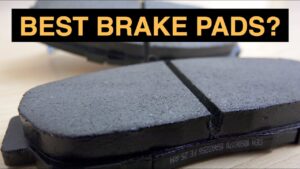An engine is an essential part of the car, and it has to function normally to perform adequately. Many components are put together in the construction of the engine. Most of which are controlled by the ECU through sensors. If you notice an engine stall or shudder, then there is a fault in the system. Also, the car overheated cranks but won’t start sometimes. The unusual behavior in the engine has to be solved immediately, or it could end worse.
Please read this article thoroughly to learn about the causes of the issue, how to fix them, and how much it costs for the service.
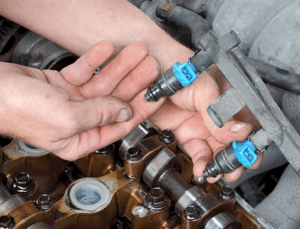
Table of Contents
Symptoms Of A Car Overheated Cranks
Some common symptoms indicate that there is a fault in the engine. First of all, the check engine light will be on if there is an issue in the engine. Also, It is the first symptom that the person should notice. If any person ignores it, then the issue propagates.
The person can notice some unusual behaviors in the engine like more sound and vibration, improper cranking, burning smell, and oil leaks. These are some common symptoms of a bad engine that the person could notice. If you notice any such symptoms, it is better to inspect your engine now.
What Causes Overheated Cranks?
Any failure of the component in the engine could overheat the car. An overheated car always struggles to start again immediately. Because it affects the cranking mechanism, some of the common causes of car overheated cranks are:
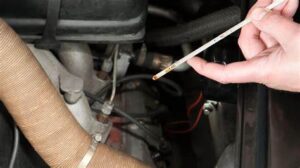
1. Low Engine Oil
The engine should always have the required amount of oil for proper functioning. The oil in the system reduces the friction between the materials and also travels to other parts of the engine. If the oil is insufficient, it affects the heat transfer and causes the engine to overheat. The overheating in the engine will affect other systems that cause the engine to crank but won’t start. It is necessary to check the oil level using the dipstick and refill every time.
2. Bad Head Gasket
A head gasket is placed between the engine block and cylinder head to restrict the oil leaks. But the gasket degrades over time, which causes cracks. Also, these cracks propagate over time and allow oil leakage. It interrupts the heat transfer and overheats the engine. The heat in the system might burn the head gasket and increases the risk of failure. The person can notice a burning smell, which is an indication of gasket failure. Replacing the gasket will resolve the issue.

3. Valve Cover Gasket
It is similar to the head gasket, but it sits between the valve cover and the engine top compartment. A bad valve cover gasket will allow leakage and produces an oil-burning smell to indicate the issue. If you notice such symptoms, it is advised to replace the gasket; otherwise, it overheats the engine and exhibits cranking problems. The mechanics will always check the condition of the gasket while refilling or replacing the engine oil. If he insists on replacing it, then better do it.
4. Bad Coolant
The coolant in the system travels all around the engine and absorbs the heat for better efficiency. If there is any leak in the coolant system or the coolant is not transferring the heat efficiently, then the heat in the system causes overheating. Also, it affects the function of other components, including cranking. The coolant, after some time, will lose its ability to heat transfer. Replacing the specified coolant for your car will solve the issue.
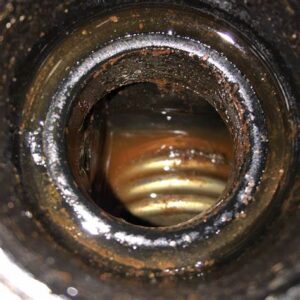
5. Damaged Thermostat
The dashboard has a dial to indicate the temperature of the system. The thermostat in the system measures the temperature and transfers the signal to the ECU. If the sensor is damaged or malfunctioning, then the output is affected and false. Since ECU controls all the systems, an incorrect output will affect the function of other components. In this case, if your engine shows a high temperature, then check if the engine is optimal or not. If it is normal, then replace the thermostat to solve the issue.
6. Faulty Sensors
It is the sensors that run the components, which in turn run the vehicle. Any false reading from the faulty sensor will affect the functioning. Check the ECU and fuses to know if it is working normally. Then check the sensors induced with the engine system and replace them if necessary. An OBD Code scanner tool will show all the defects in the system. Solve all the issues, respectively, to avoid further problems.
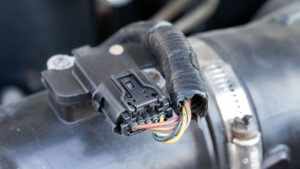
7. Weak Battery
A battery is the power source that runs the ECU and systems. If the battery is dead or weak, it affects the signal transmission, thereby affecting the function. Check your car battery and recharge or replace it if necessary. Driving with a weak or dead battery will increase the risk of a vehicle shutting down in the middle and affects the ride.
These are some general causes of car overheating cranks, and if you notice such problems, then resolve them immediately.
How To Fix It?
These tasks require specific tools and skills. So it is better to hire a professional mechanic to look into the issues. The cost of repair and replacement varies based on the spares required and the complication of the work. The labor charge would cost around $500 to $1000 without including the cost of spares.
To avoid the difficulty in the work, then better do some regular service over time. Replace the engine oil and coolant regularly, check for leaks in the system, and do not ignore any issues. These general steps will avoid car overheating and cranking problems.
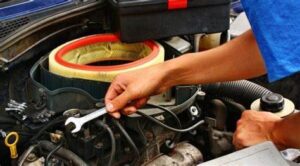
Frequently Asked Questions about Overheated Cranks:
So, here are some of the frequently asked questions about what are the reasons, causes solutions for Car Overheated Cranks that won’t start-
Why Would A Car Not Start After Overheating?
When a car would not start after overheating then the reason can be due to loss of compression, due to a faulty system of fuel, or the valve to damaged.
Can Overheating Cause Hard Starting?
Yes, overheating could cause a hard for starting a car when the engine gets hot for this you should check the car’s level of cooling
What Causes An Engine To Crank But Not Start?
When an engine crank but does not start then the most common causes behind can be because of Fuel flow, Spark plugs, Crankshaft, Compression ratio, Battery
What To Do If Your Car Overheats And Stalls Out?
Then recheck the engines condition to see if it stalls out again. If the engine does stall out and begins to overheat, then the engine’s head gasket maybe burned or the thermostat maybe stuck. If you need further assistance with your engine overheating, then seek out a professional, such as one from Your Mechanic, to help you
Can A Coolant leak Cause A Car To Overheat?
coolant leaks can be either a cause or a result of overheating. Therefore, once the leak is repaired, your vehicle will still have to be tested to make sure that there are no other causes of overheating, other than perhaps just the leak you experienced.
Conclusion
It is recommended to check for issues regularly and resolve them appropriately for better performance. It suits well for the engine. The engine is the prime factor here that decides the maintenance cost of your vehicle.
If you notice any unusual behavior in the engine, then better solve it quickly. Driving with a bad engine will increase the risk of breaking down or, at worse, leading to accidents. It is our responsibility to drive cautiously.
Follow us to know more about similar content. If you have any queries or suggestions, please let us know in the comment section below.


